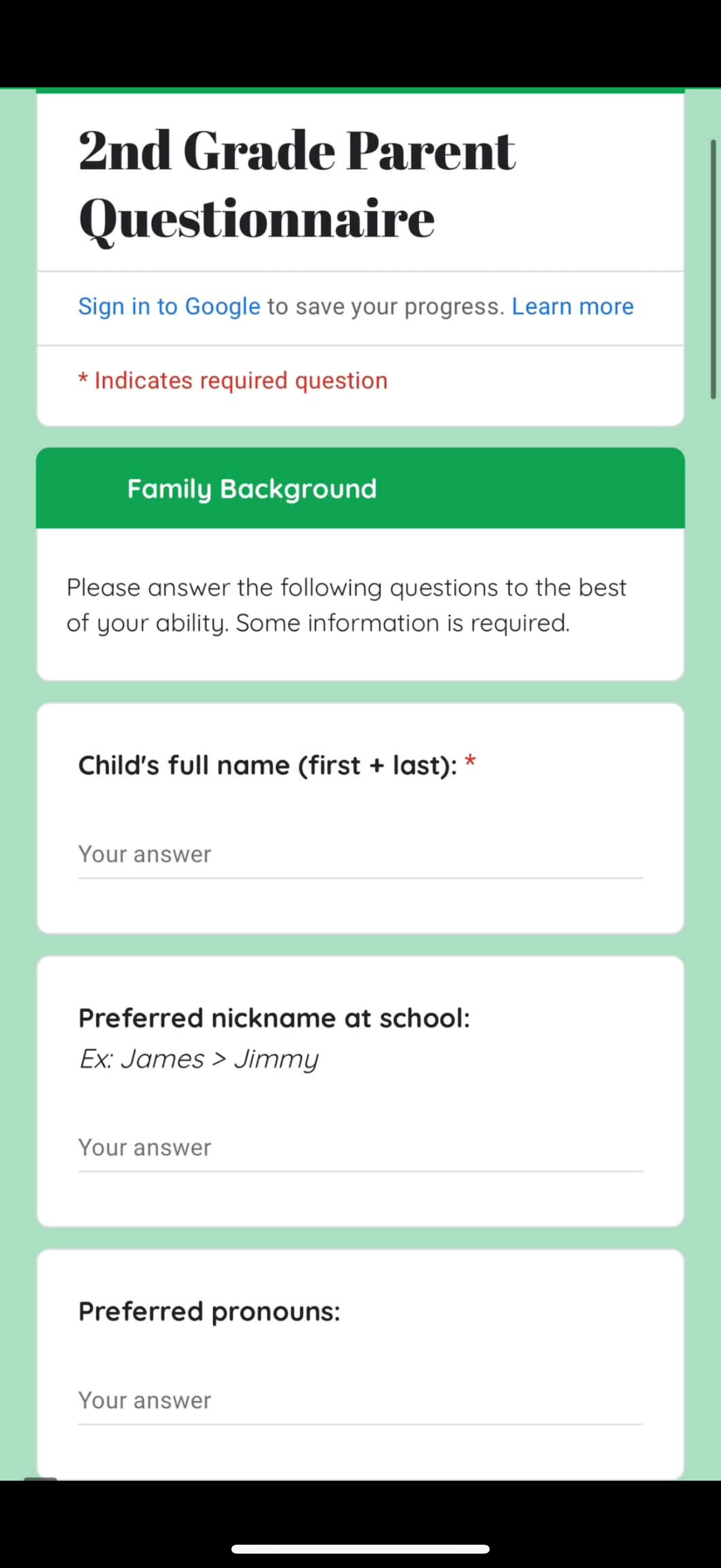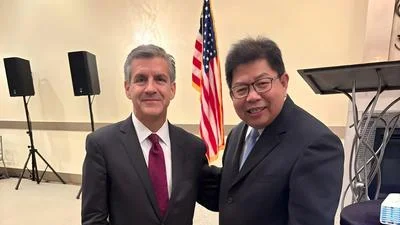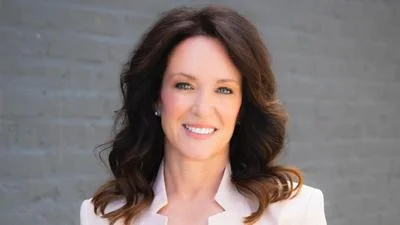Kristina McCloy | McCloy
Kristina McCloy | McCloy
Community Consolidated School District 181 (D181) has quietly implemented a policy shift that now allows parents to officially opt their children out of classroom and library materials they deem inappropriate, marking a major win for Kristina McCloy, founder of Concerned Parents of Illinois and legal advocacy group Judicial Watch.
The change comes after nearly a year of pressure from McCloy, who began pushing back when local moms came to her with concerns about their children being exposed to sexualized and ideologically driven content in D181.
“This is the power of moms,” McCloy told Dupage Policy Journal. “We refused to back down, even when the district ignored us, lied to us, broke its own policies, and shoved sexualized LGBTQ content at our little kids.”

Michael Bekesha, senior attorney for Judicial Watch
| Judicial Watch
The opt-out process applies to approximately 3,564 students in Hinsdale, Burr Ridge and Clarendon Hills across D181’s nine public schools, which include one preschool, seven elementary schools and two middle schools.
Following pressure from Concerned Parents of Illinois, the district also removed two books from its library collection: "My Princess Boy" by Cheryl Kilodavis and "It Feels Good to Be Yourself: A Book About Gender Identity" by Theresa Thorn.
“By standing firm, we forced them to change, and today, parents in D181 finally have the right to shield their children from this age-inappropriate agenda,” McCloy said. “This is what happens when moms fight together for parental rights and never back down. Thank you to Judicial Watch for standing with parents and defending their rights, and to D181 for finally listening to its parents.”
But while the new opt-out policy marks a significant step forward, McCloy emphasized that much work remains to ensure full transparency and accountability within the district. She pointed to the continued presence of LGBT-themed materials in D181 classrooms and libraries, including books that were read aloud to very young students without prior parental notice.
Among them were "A Family Is a Family Is a Family" by Sara O’Leary, which introduces the concept of same-sex parents, and "Bathe the Cat" by Alice B. McGinty, which features same-sex parents and introduces the "agender" and transgender pride flags. Both titles were read aloud in kindergarten classrooms during the previous school year, according to McCloy.
“Concerned Parents has worked diligently to identify LGBTQIA and other age-inappropriate materials currently accessible in our elementary school district, D181," McCloy said. "Unfortunately, the district’s public online library portal lacks parental transparency, as many books with clear LGBTQIA content are not labeled or disclosed accordingly. We have communicated this concern directly to the administrative leadership of D181, making it clear that the current system falls short of transparency and accountability.”
McCloy noted the content has appeared not only in classrooms and school-recommended reading lists, but that some teachers have asked students to identify their preferred pronouns, raising additional concerns among parents about age-appropriateness and ideological messaging.
A “Second Grade Parent Questionnaire” was distributed to the parents of 7- and 8-year-olds by at least one teacher. It asked parents to provide their child’s preferred nickname and pronouns. The form, accessed through a Google link has prompted criticism from parents who feel such topics are inappropriate for young children and without clear parental consent.

The initial push for an opt by Concerned Parents of Illinois came in 2024. McCloy got involved in October when local mothers approached her for help.
Over the summer of 2025, Concerned Parents of Illinois criticized the district's summer reading list that featured multiple books assigned to children as young as six.
“These selections have raised serious questions among parents about the direction of curriculum and the ideological messaging embedded within it,” a press release from Concerned Parents of Illinois at the time said.
Among the concerning materials being pushed to D181 elementary school students was "Billie Jean King: Ordinary People Change the World," recommended for first graders, which discusses King’s realization that she was gay and her romantic relationship with a woman.
Another book, "Katie the Catsitter: Best Friends for Never," recommended for third grade, includes a scene in which a character mentions the possibility of having a "boyfriend, girlfriend, or nonbinary friend."
In "BenBee and the Teacher Griefer," assigned to fifth graders, a student rejects their birth name and biological sex, asks to be called a boy, and advocates for the use of "gender-neutral" bathrooms.
With the help of Judicial Watch Senior Attorney Michael Bekesha, McCloy began pressing the district to respect her rights to opt out of exposing her child to such materials.
“Kristina reached out to me in the spring, and she wanted to limit her son’s access to certain books both in the classroom and during library time, as well as prevent him from checking out those books,” Bekesha told DuPage Policy Journal. “The school district basically said they could prevent her son from checking out the books in the library, but they couldn’t control what he picked up while in the library. Kristina was concerned that this wouldn’t be adequate because the books were contrary to her beliefs.”
Bekesha explained how this advocacy led to a breakthrough in the district’s approach.
“Over the past few months I've been working with her to find a way to have her have the say over what her son learned when it comes to LGBTQ issues,” he said. “And just this week we have found out that the school district is willing to prevent her son from accessing the books that she has concerns about.”
The resolution came shortly after McCloy signaled that she was preparing to take legal action against the district.
In response, the district introduced a new “Request to Opt Out of Curriculum Content” form which provides a formalized process that grants parents the ability to object to specific classroom materials or books.
Click HERE to access Concerned Parents of Illinois' opt out form.
The form also allows parents to opt their children out of topics permitted under Illinois law, including sex education, LGBTQ-related content, dissection, sexual abuse prevention, CPR/AED lessons and more.
Additionally, it provides a pathway for parents to file objections based on their religious beliefs.
Opted-out students will receive alternate assignments or activities of comparable academic value.
Bekesha emphasized that the new form isn’t just about one family—it’s a blueprint for others across Illinois and the nation.
“[Kristina] is also doing it for the greater good, to have families be able to share the story so that families not only in the school district, but hopefully around the state of Illinois and maybe beyond, realize that they do have a say, they do have rights when it comes to their child’s education,” he said.
D181’s reversal, whether prompted by legal pressure or quiet legal advice, is being viewed by parents and observers as an acknowledgment that transparency and parental control had been lacking.
“The school district has definitely changed over the past few months,” Bekesha said. “No one knows exactly why but had Kristina not been pushing the issue I imagine that change wouldn't have taken place.”
“Some school districts are very good at making it public on how you go about doing things, and other school districts kind of hide the fact that parents can opt out their children of certain lessons and materials,” he said.
Bekesha encourages parents to push past that ambiguity and seek support.
“The best thing for parents to do is when they have concerns about whether it's materials such as a book, entire curricula, or lesson plans, reach out to the school,” he said. “Ask the school what's going on, ask if there's an opt-out form, or more generally, how they can opt their children out. That's always a good place to start.”
He suggested that parents who don’t receive answers to their inquiries, or who get pushback from schools unwilling to work with them, should reach out to advocacy groups for help.
"Reach out to Judicial Watch and to other organizations, like Concerned Parents of Illinois, that are in this fight," Bekesha said.






 Alerts Sign-up
Alerts Sign-up